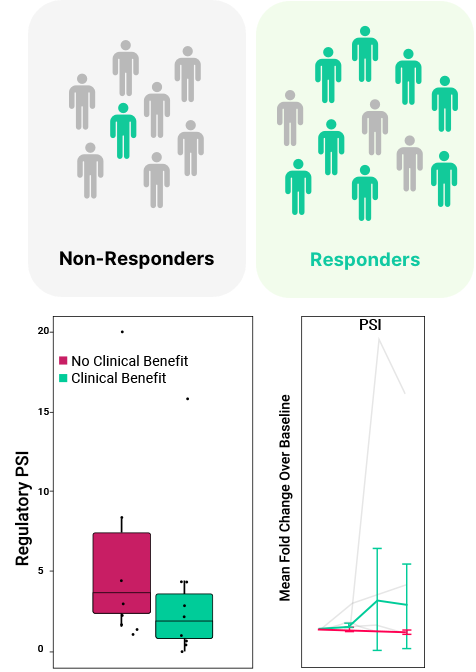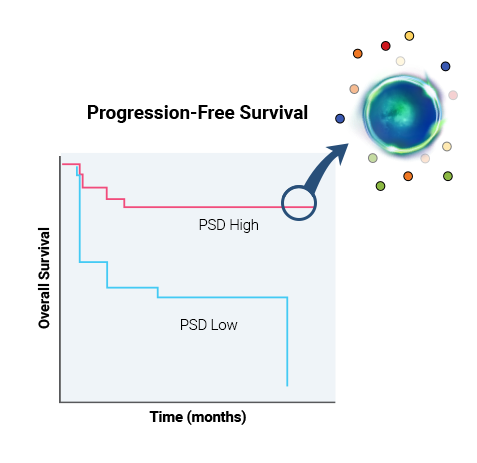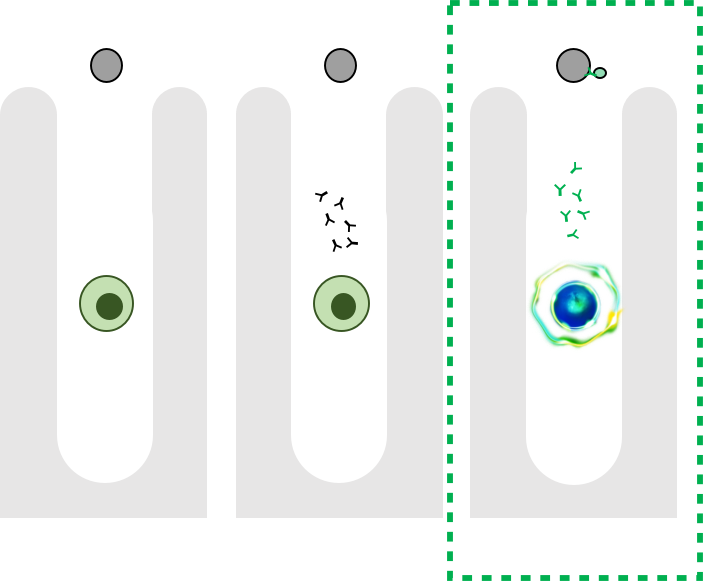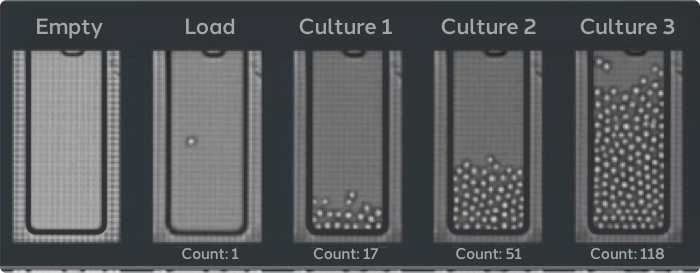Accelerate the Next Generation of Cancer Immunology with Functional Proteomics
Bruker Cellular Analysis' Functional Proteomics helps you reveal unique insights into the mechanisms of immune persistence and durability in overcoming difficult-to-treat cancers.
Cancer
Immunology
Accelerate Research with Bruker Cellular Analysis
Overcoming Challenges in Cancer Immunology
Cancer cells in the tumor microenvironment secrete cytokines that interact with other cells, such as immune cells, which facilitate intracellular communications and jointly moderates pathophysiological processes, including cancer-induced angiogenesis and metastasis.
Overcome these challenges with Bruker Cellular Analysis by functionally defining each cell type to inform more effective therapies:
Clinical Immune Monitoring
Each immune cell is different, and characterizing each individual tumor or immune cell is critical for maximizing success in the clinic. With Bruker Cellular Analysis' single-cell and bulk functional proteomics platforms, we're filling the gap in clinical immune monitoring by directly detecting the highly functional subsets of super cells driving immune response.


Early Indicators of Response
Bruker Cellular Analysis' functional proteomics has the unique ability to identify and analyze the superhuman polyfunctional cell subsets driving key immune response, revealing critical functional cellular attributes for improved preclinical development and clinical outcomes. In this Phase II clinical trial, Bruker Cellular Analysis' single-cell functional proteomics platform identified the clinical benefit of certain polyfunctional cytokine profiles from superhero CD4+ T cells, demonstrating higher patient response to the combined immunotherapies.

Early Indicators of Persistence
By revealing early indicators of persistence, Bruker Cellular Analysis provides a more comprehensive characterization of the tumor microenvironment, accelerating insights in cancer immunology and revealing predictive functional superpowered cell subsets to advance the development of novel cancer immunotherapies. In this publication, researchers used Bruker Cellular Analysis' polyfunctionality metric to assess the mechanism of how their combination novel IL-2 agonist therapy reduced tumor burden in mouse models that flow, RNA-seq, and mass cytometry could not effectively show.


Predictive Biomarkers of Survival
Immune checkpoint inhibitor therapies have revolutionized cancer treatments, improving patient survival rates in a number of cancers, including metastatic melanoma. However, these therapies may not produce durable responses in all patients. Bruker Cellular Analysis' platform enables identification of predictive biomarkers indicative of survival much earlier than was previously possible with traditional technologies, accelerating insights into the path toward overcoming difficult-to-treat cancers such as metastatic melanomas. In a recent publication in JCO, Bruker Cellular Analysis platform identified that a blood-based biomarker correlated with patient response and progression-free survival.

Accelerated Antibody Discovery
Biologic drug discovery commonly necessitates the creation of therapeutic antibodies against specific targets. Bruker Cellular Analysis' Plasma B Discovery workflow on the Beacon platform identifies and employs functionally relevant clones to accelerate antibody development timelines.


Establishing Production Cell Lines
Creating biotherapeutics requires clones from a single progenitor to serve as protein factories. In this publication, researchers used Bruker Cellular Analysis' Beacon platform to generate cell lines with >99% monoclonality assurance while saving time and reducing hands on labor.
Publications
Publications highlight customer breakthroughs across research and medicine.

Case Studies and Resources
Stay at the cutting edge of science and medicine with case studies, literature and resources



